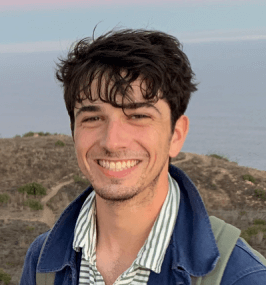After Tree of Life sentencing, 6 Jewish scholars on what text and tradition say about the death penalty
Robert Bowers has been given the death penalty. What does Jewish law say?
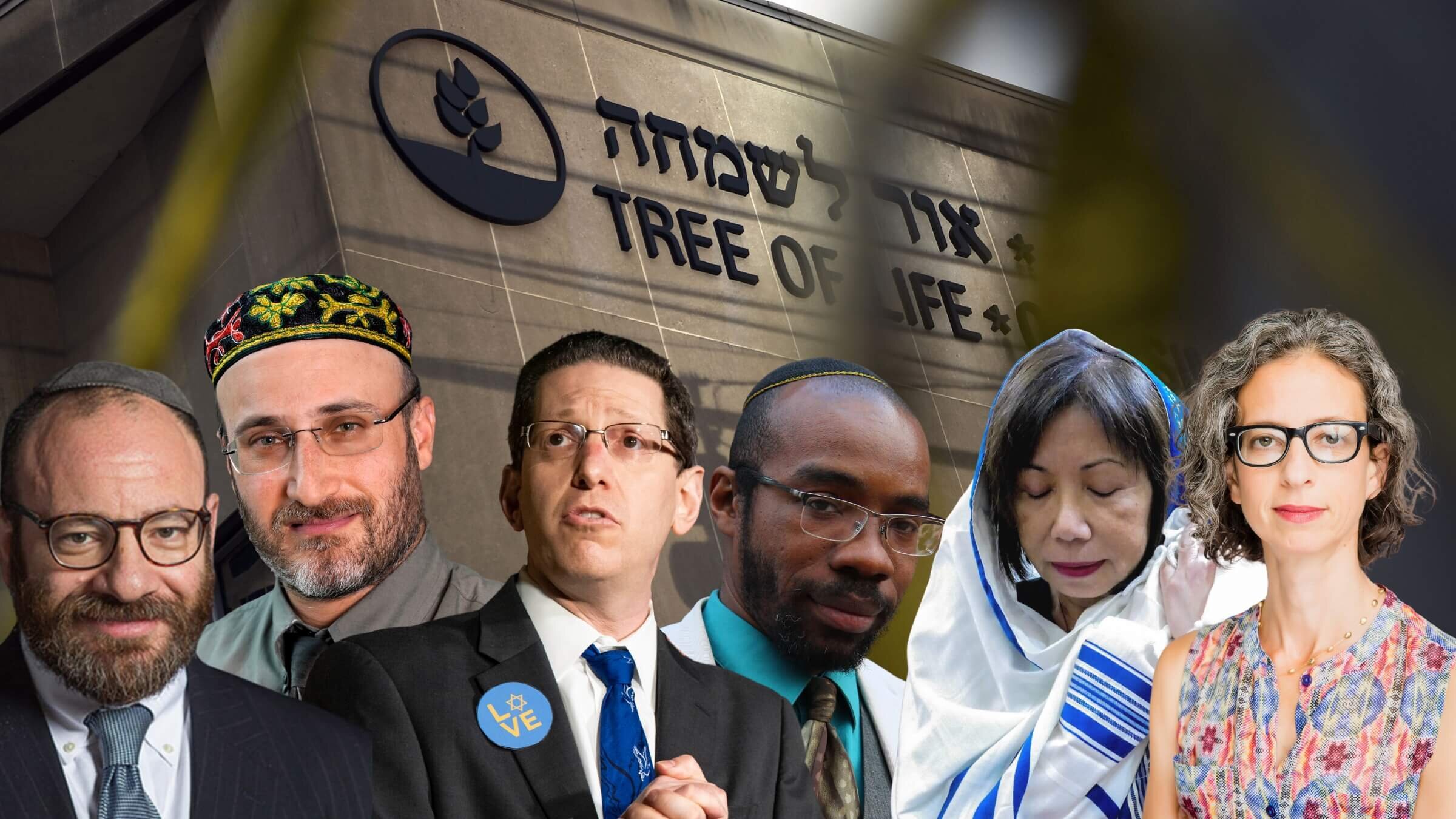
What does Judaism say about the death penalty? We gathered six Jewish scholars to find out. Photo-illustration by Matthew Litman. Tree of Life photo by Brendan Smialowski/AFP via Getty Images
The following story has been updated in the wake of a federal jury sentencing Robert Bowers.
A federal jury voted to sentence Robert Bowers, the man convicted of murdering 11 worshippers at Pittsburgh’s Tree of Life synagogue in the worst antisemitic attack in U.S. history, to death on Wednesday.
Relatives of nine of his victims support that decision, writing in the Pittsburgh Jewish Chronicle last year that “there is a time for compassion” and “a time to stand up and say enough is enough.” In contrast, Rabbi Jonathan Perlman, who leads a congregation that met in the same building and was there the day of the massacre, urged the U.S. Attorney General not to pursue the ultimate punishment against Bowers, saying of the pain he caused: “Let him live with it forever.” Reacting to the decision in the Forward, Perlman wrote: “Revenge will not bring our slain loved ones back to life. And seeking it may even hurt ourselves and extend our sadness.”
Broadly, according to a 2014 poll, American Jews are less supportive of capital punishment (33%) compared to all Americans who were surveyed (44%).
Listen to That Jewish News Show, a smart and thoughtful look at the week in Jewish news from the journalists at the Forward, now available on Apple and Spotify:
The Torah lists 36 crimes eligible for the death penalty, including murder, adultery and idolatry. But the Talmud makes clear that it’s to be used rarely, if ever. Just a one-vote majority in a 23-person panel of judges, instead of the usual three, could acquit the accused of death.
We asked six rabbis, cantors and scholars to share their interpretations of Jewish text and tradition regarding capital punishment, and to challenge each other’s. The conversation was conducted via Google Docs, and has been edited for length and clarity.
Our panel:
Rabbi Charlie Cytron-Walker, who was taken hostage with several congregants in his shul in Colleyville, Texas, in January 2022. He is now the rabbi of Temple Emanuel in Winston-Salem, North Carolina.
Cantor Michael Zoosman, a former prison chaplain and co-founder of L’Chaim: Jews Against the Death Penalty, a Facebook group with 2,600 members.
Professor Beth Berkowitz, who teaches Jewish studies at Barnard College, and wrote the 2006 book Execution and Invention: Death Penalty Discourse in Early Rabbinic and Christian Cultures.
Rabbi Shais Rishon, who writes under the moniker MaNishtana, an award-winning novelist and speaker and contributor to the forthcoming anthology Jewish Priorities: 65 Proposals for the Future of Our People.
Rabbi Jeremy Kalmanofsky of Congregation Ansche Chesed in Manhattan, whose 2012 responsa “Participating in the American Death Penalty” was adopted by the Conservative movement in 2013 as one of its official halakhic positions.
Rabbi Mira Rivera, a chaplain and rabbi-in-residence at JCC Harlem and The Lunar Collective, who was among the 2023 recipients of T’ruah’s “Rabbinic Human Rights Hero Award.”
So what does Jewish law say about capital punishment?
Rabbi Charlie Cytron-Walker: I was asked after the hostage situation in Colleyville how I felt about the death of the gunman, who was killed by law enforcement after we escaped. I didn’t have an emotional response then or now.
Maybe it was because he kept repeating that “he loved death more than we loved life,” or because he had talked with us all day about how he was planning to die. I don’t feel he got what he deserved, as the cliche goes. If anything, I just feel sad that he lost his life because he believed antisemitic lies and acted on them.
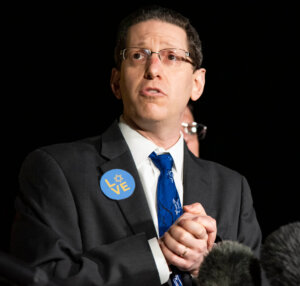
Jewish tradition allowed a Sanhedrin, the ancient Jewish court, to condemn a person to death. It was to be done with great seriousness, ample evidence, witnesses and an understanding of the consequences. The sages had great debates about whether or not the death penalty should ever be carried out (Makkot 1:10).
I oppose the death penalty as a general rule in the U.S. because the very high standard required by Jewish tradition has not been met. Numerous people on death row have been proven innocent — far too many of them after they were murdered by the state.
In the Tree of Life case, it seems clear that the gunman planned it out and knew what he was doing. There is no doubt that he committed these heinous crimes. All of the strict requirements that would have allowed a Sanhedrin to condemn him to death have been met. For these reasons I do not oppose this individual receiving the death penalty.
I offer this without hatred or a desire for revenge — just great sadness and mourning.
Cantor Michael Zoosman: I used to support the death penalty, but that was before I became a prison chaplain in 2009 and my eyes were opened to its horror. As I have witnessed time and again in my correspondence and conversations with the condemned, capital punishment constitutes psychological — and often physical — torture. One penpal of mine attempted suicide as he counted down his days to execution in 2021.
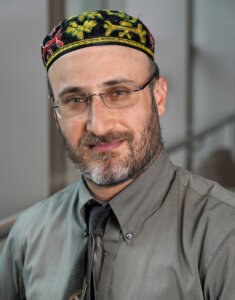
It’s worth remembering that the great writer Elie Wiesel opposed capital punishment despite the horrors he had seen firsthand in the Holocaust.
“Death should never be the answer in a civilized society,” Wiesel said during a talk at Wesleyan University in 2010. And days after Israel executed the Nazi leader Adolf Eichmann in 1962, the seminal Jewish philosopher Martin Buber called it a “mistake of historical dimension.”
Lethal injection, the most common form of capital punishment currently in use in the U.S., is a direct Nazi legacy, first implemented by the Third Reich in its infamous Aktion T4 protocol. In 2021, The Guardian reported that Arizona spent more than $2,000 to acquire the ingredients for cyanide gas, which the Nazis used under the name Zyklon B.
No Jewish argument about the death penalty in the 21st century should ignore these facts. Rather, Jews across the world should declare “never again to state-sponsored murder!”
‘Once in 70 years’ — or never
Professor Beth Berkowitz: The Mishnah, the canonical law code of the early rabbis, leaves us suspended between multiple moral perspectives on the death penalty that can, I hope, help the Jews of Pittsburgh as they face the sentencing phase of the Tree of Life trial. Mishnah Makkot, a tractate that centers around court-administered punishments, offers three positions, each more opposed to capital punishment than the one before — and then a fourth that presents a classic counterpoint.
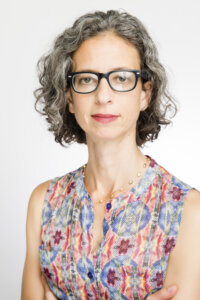
Here is the relevant passage: “The court that kills once in every seven years is called destructive. Rabbi Elazar ben Azariah says, ‘Once in 70 years,’ Rabbi Tarfon and Rabbi Akiva say, ‘If we had been in the court, no one would ever have been killed.’”
Jews who don’t like the death penalty — I’m one of them — tend to skip over the final line in the passage. It quotes Rabban Shimon ben Gamliel saying that Rabbis Tarfon and Akiva “multiply murderers in Israel.” He is making the classic deterrence argument: You have to kill people to stop people from killing people.
Criminologists have debated this for decades. The American Civil Liberties Union found in 2007 that states with the death penalty “do not have lower crime rates or murder rates than states without such laws.” A 2012 paper from the National Research Council says “the scholarly evidence on the deterrent effect of capital punishment is too weak to guide decisions” on policy.
My own perspective follows Coretta Scott King, who said in a 1981 speech, “Morality is never upheld by a legalized murder.”
Rabbi Shais Rishon: I want to go back to Jan. 4, 1861, a day that President James Buchanan designated for national fasting and prayer as our fledgling nation wrestled with the moral quagmire of slavery. Rabbi Morris Raphall delivered a rousing sermon at B’nai Jeshurun in Manhattan in defense of that “peculiar institution” — on the very Shabbat in which Jews worldwide would begin reading Exodus.
Rabbi Raphall lazily transposed the Biblical story of Exodus onto the 19th-century American situation — and was vehemently denounced as disingenuous by prominent Jewish anti-slavery activists. Rightly so as the institution of slavery condoned in the Torah was a far cry from the reality and practices of the chattel slavery of the Transatlantic Slave Trade.
In a similar vein, the Talmudic version of capital punishment is one infused with reluctance, scrutiny, justice and even a surprising kindness.
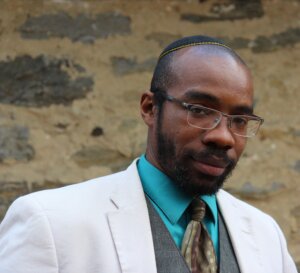
In today’s America, 75% of those sentenced to death are people convicted of killing white people, even though more than half of all homicide victims in the country are Black. At the same time, Black and Latinx Americans make up 55% of the current death row population. Experts estimate that 2% to 10% of all U.S. prisoners are likely innocent.
And, as Cantor Zoosman mentioned, the most common form of execution is a holdover from the repertoire of Nazi Germany.
It is clear that the American death penalty as currently practiced is not a function of justice and reluctance, but one of control and vengeance, in a system that itself was created as a vehicle to exploit the 13th Amendment and legally reconfigure the institution of slavery.
It is nothing less than state-sponsored murder dressed in the garb of justice, and it epitomizes how the classical judicial system of our Jewish tradition is susceptible to corruption in the absence of the piety and morality of the society in which it was given.
In search of mercy and justice
Rabbi Jeremy Kalmanofsky: The American death penalty is the wrong answer to the right question: How should societies reckon with those who would abuse, violate, even kill innocent victims?
Because mass incarceration has overgrown reasonable boundaries and police power is wielded in such racially invidious ways, some renounce the very concept of coercive punishment. The prison abolitionist Mariame Kaba, for example, thinks even R&B stars who rape 14-year-old girls should not be jailed. “The question has been phrased like this: ‘Surely you don’t mean R. Kelly shouldn’t be in prison?’ We do.”
I don’t. There is nothing in Jewish tradition that says vicious people should escape human justice. Sometimes the state will have to confront violence with the violence of incarceration. In the most extreme cases, the state may have to wield the ultimate violence: execution.
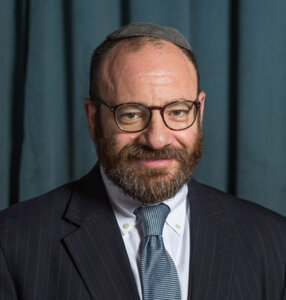
The Torah asserts the paradoxical view that because human life is infinitely precious, capital punishment is the only morally appropriate response to homicide: “Whoever sheds human blood, by human hands will his blood be shed, for in the divine image God created humanity (Genesis 9:6).” Through rabbinic interpretation and application, Judaism came to stress that capital punishment should be applied only as the last resort, under the most exacting standards of evidence and only when guilt was absolutely certain.
The American death penalty — happily in decline — rarely meets those standards. Perhaps the most famous teaching in rabbinic literature — that saving a single life saves the world, and destroying a single life destroys the whole world — comes in a discussion of the dangers of executing an innocent person, wrongly convicted (Mishnah Sanhedrin 4.5).
Nearly 200 death row prisoners have been exonerated in the U.S. since 1973. Hasty juries, unscrupulous prosecutors and inept defense counsels nearly destroyed the world 200 times over.
As Professor Berkowitz mentioned above, American Jews who oppose the death penalty generally focus on Rabbis Akiva and Tarfon’s abolitionist view in the Mishnah. Yet we would be wise to pay attention to Rabban Shimon ben Gamliel’s counter-voice as well. He reminds his fellow sages — and us, across the ages — that when it comes to criminal justice, din and rachamim, mercy and justice, are a matched set. We need both.
Rabbi Mira Rivera: When you kill someone who’s praying for peace / You are killing them at the moment when they’ve closed their eyes / When they turned their backs to the door / Tuned out every sound / This is the moment / to trust humanity the most
Rafael Shimunov of Jews for Racial and Economic Justice wrote these words in response to the shooting of worshippers in mosques in New Zealand in 2019, four months after the massacre at Tree of Life. Then there was Poway, Atlanta, Buffalo and Uvalde — so much senseless killing. In the subsequent months I sang Rafael’s words to myself in order to keep sane as I lurched from one vigil to another.
I want to unpack a quote that Rabbi Kalmanofsky mentioned above: “Whoever destroys one soul from the Jewish people, it is as if one has destroyed an entire world. Conversely, anyone who sustains one soul from the Jewish people, it is as if they sustained an entire world.” The primary source of this passage is Genesis 4:10, when God confronts Cain for killing his brother, Abel: “What have you done? The voice of your brother’s blood cries out to me from the ground.”
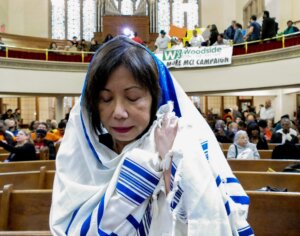
The Hebrew word used for “blood” here is plural, which early rabbis say “teaches that his blood was not gathered in one place but was splattered on the trees and on the stones.” In other words, the blood is on all of our hands.
No one escapes the consequences of loss and the degradation of human life, or avoids its responsibility: not the victims, not the perpetrator found guilty, not the society that pronounces capital punishment through its courts, not the society that continually scrambles to institute corrective measures in many spheres of life. All are besmirched, all are wounded visibly and invisibly.
While this Mishnah is focused on the Jewish community, it’s important to remember that it is stated that regarding non-Jews, “It is permitted to help their poor, visit their sick, bury their dead, eulogize them, and console their mourners, for the purpose of maintaining peaceful relations with them.” In Harlem, the Jews are a few of several faiths who turn our backs to the door when we pray. When we speak about the law of the land, it should apply to all of us regardless of creed or ethnicity.
A ‘Hineni’ moment for the American Jewish community
Rabbi Rivera and Cantor Zoosman, you clearly are opposed to capital punishment in all cases. Did anything in the Bowers trial give you pause, given that view?
Zoosman: I believe that while traditional Jewish and rabbinic source allow a place for the death penalty (with prodigious safeguards) under the now-disproven notion of deterrence and other factors, we have a responsibility as 21st-century Jews to learn the lessons of the events of the 20th century and put an end to it now once and for all. I recognize that I am nogeia b’davar — likely too close to this issue to be fully objective. But my work also makes me privy to the inherent psychological and physical torture that comes with every single sentence of death.
Nothing in the Bowers case, nor any other case — actual or hypothetical, has changed my opinion on this matter. On the contrary, the Tree of Life synagogue shooter’s case marks a “Hineini” (“Here I am”) moment for the American Jewish community to honor and elevate the very best that Jewish values have to offer this world.
Rabbi Sharon Brous powerfully indicated this in her renewed call for abolition while discussing the Tree of Life case within the framework of last week’s Torah portion, Pinchas.
Rivera: Our sages wrestled and wriggled on imposing death for a capital offense, holding that two witnesses should first be identified who had warned the would-be perpetrator of a potential punishment of death (Tosefta Sanhedrin 11: 1-2).
In Bowers’ case, the overwhelming evidence of premeditation, meticulous preparations and continual publicizing of intentions are impossible to ignore. I am but human and I think of the families destroyed in the Shoah, and those here in their America of second chances. I have to bite my lip. This discussion is personal. Jewish life is personal.
Rabbis Kalmanofsky and Cytron-Walker, same question but in reverse: Did you hear anything that made you think — no, Jewish law does not allow for this man to be put to death?
Kalmanofsky: I certainly would not say that Jewish tradition affirmatively endorses the death penalty for Bowers. The American death penalty is employed all too frequently (even as it has declined sharply in recent years), and I am not sure we need blood on our national hands yet again. I personally would prefer that Bowers receive life in prison.
However, I think Jewish tradition authorizes governments to fight crime with the legitimate methods in their toolkit, which includes capital punishment. I would hope American authorities apply it only in the rarest and most extreme cases, when the capital punishment will express a society’s ultimate revulsion at a given crime and especially when it can reasonably be thought to have some deterrent value.
Does that apply here? Reasonable people could argue either way. Here is an analogy: Dylann Roof hated Black people, and murdered nine of them at worship in Charleston, South Carolina in 2015, for which he was sentenced to die. Robert Bowers hated Jewish people, and murdered 11 of them at worship in Pittsburgh, in 2018. I would understand if the forces of American criminal justice choose to treat Bowers the same as Roof.
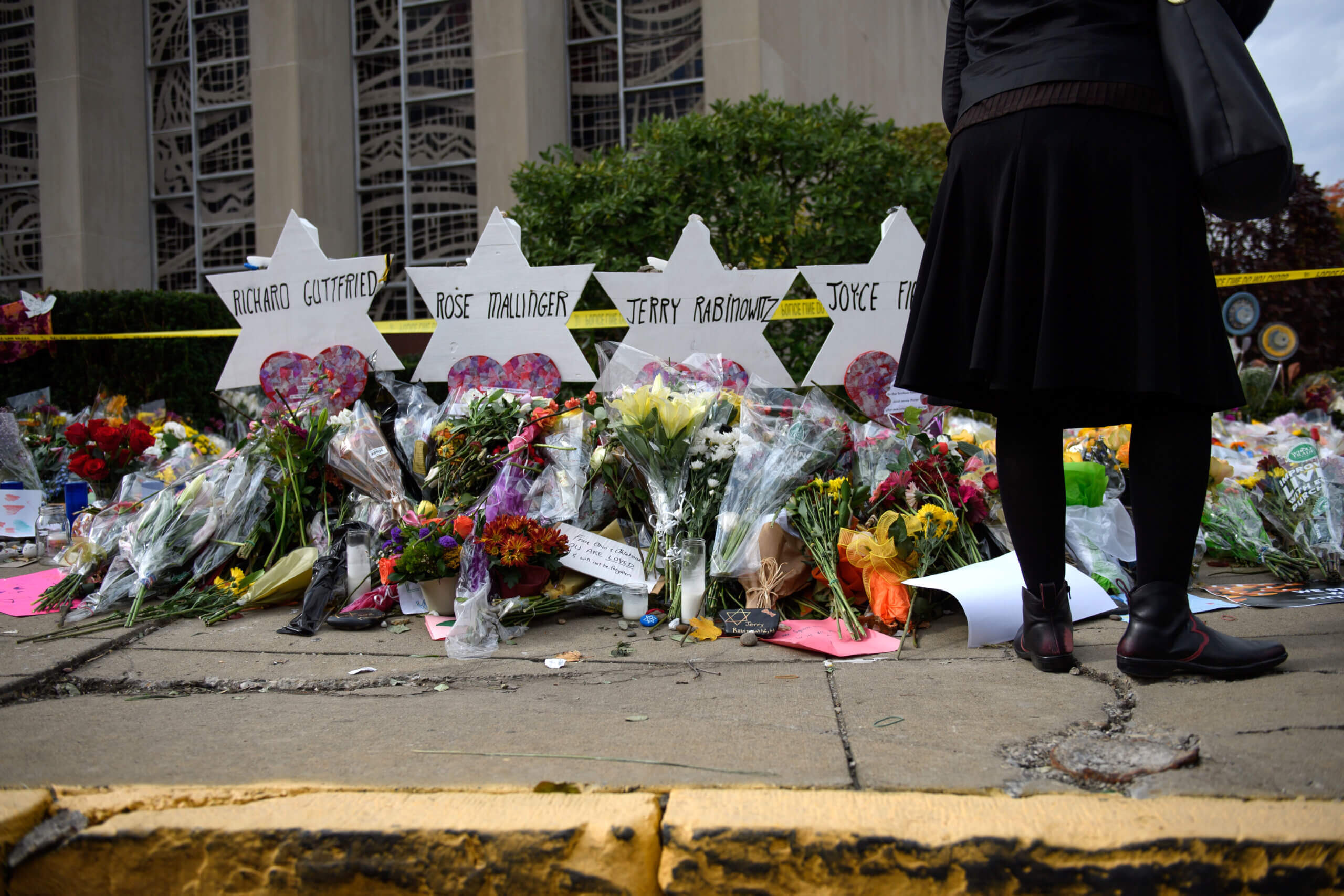
A ‘highly questionable endeavor’
Professor Berkowitz and Rabbi Kalmanofsky both noted that American Jews who oppose the death penalty often cite the Mishnah regarding Rabbis Tarfon and Akiva saying it should never be used — but ignore the part where Rabban Shimon ben Gamliel says it is necessary as a deterrent. Isn’t this picking and choosing problematic?
Rishon: It’s an interesting notion to frame modern-day preferences of Rabbis Akiva and Tarfon over Rabban Shimon as “picking and choosing.”
It’s less that they (or we) are “picking and choosing,” more trying to reconcile a mandate of capital punishment for sinners with a more prevalent desire that the wicked rehabilitate themselves rather than lose their lives. Neither Rabbis Akiva and Tarfon nor Rabban Shimon are arguing for or against “the death penalty” per se, but wrestling with how to achieve the ideal of said penalty not having to be enacted at all.
Rabbi Akiva was famous for interpreting even the “crowns atop the letters” in the Torah scroll, a staunch advocate that nothing in it — no word, no syllable, no letter — was superfluous and, in that vein, that every single soul serves some purpose in creation. Rabbi Tarfon, an adherent to the notoriously austere school of Shammai, is recorded more often as directly opposing the severity of his colleagues and inclining toward a model of leniency.
It is therefore no wonder that their strategy to circumvent capital punishment would be to abolish it. Rabban Shimon, however, frequently sees the needs and concerns of the community superseding those of the individual. That explains his approach to the challenge of capital punishment being its own deterrent. Thus the wicked would escape death by being threatened with the prospect of it.
But using Rabban Shimon’s argument — that murders increase in the absence of capital punishment — in modern-day America is a highly questionable endeavor, as statistics demonstrate that the murder rate in non-death penalty states has consistently remained 4% to 44% lower than the rate of states with the death penalty. To argue from Rabban Shimon’s stance, with such knowledge readily accessible, would be to wildly ignore the Rambam’s admonition to “Accept the truth regardless of its source.”
Wary of authority, a willingness to change and the need to wrestle with reality
Professor Berkowitz, what did you learn while writing your book about the differences in attitudes of Jews and Christians toward the death penalty?
Berkowitz: Early rabbis and Christian leaders were both very interested in the death penalty, but in almost opposite ways. The early rabbis tended to talk about it from the point of view of the judge, while the early Christians tended to talk about it from the point of view of the executed.
Contrast the Mishnah’s fairly elaborate laws of execution with the many Christian stories of martyrdom, for which the passion narrative in the Gospels served as the foundation. But the ancient Jewish and Christian discourses are not actually as far apart as they might initially seem.
Both Jews and Christians were intent on creating new models of authority, and both were very critical of the Roman exercise of power. That is something important to keep in mind in this discussion about the American death penalty — rabbinic tradition has been rightfully wary of the exercise of power by dominant authorities.
Should our thinking about the death penalty change with the times? How do we absorb the data showing a disproportionate number of Black and Hispanic people on death row in our current national conversation about structural racism?
Kalmanofsky: How could we not change to respond to the real society in which we live? Political and social thinking must hook on to the world as it is, not only as it exists in books — even holy books.
A small but important example: Apparently it made sense in biblical Israel to execute people for gathering sticks on Shabbat and for sexual transgressions. I doubt that even the most rigorous halachic authorities dream of re-instituting such punishments today.
Our world has changed, so our vision of justice has and will continue to change. Capital punishment can be warranted only in those rare cases when it would make society more just, as we reckon justice. The racial disparities in American criminal justice are the principal reason the American death penalty is such a bad policy.
Berkowitz: I wanted to return to Cantor Zoosman’s point about the physical dimensions of the death penalty. The ancient rabbis were very concerned with the methods of execution. They debated the details of exactly how criminal execution should be performed, and they introduced the notion of a mitah yafah, a good death.
I don’t think it’s a huge stretch to see a connection with the Eighth Amendment’s prohibition on cruel and unusual punishment. We can’t just debate the death penalty in theory; we have to debate the death penalty in practice. It’s a good time to take a closer look at the method of execution that would be used, which presumably would be lethal injection. We need to be wrestling with the realities of capital punishment.
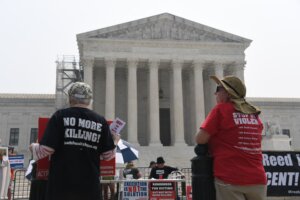
‘It is also very Jewish and very human to disagree’
For those who oppose the death penalty in all circumstances, what would you say to the family members of the victims who said they wanted to see Bowers executed?
Zoosman: On June 29, my group, L’Chaim, held a vigil outside the Supreme Court to protest the sentencing phase of the Tree of Life trial. I began that event by chanting the Eil Malei Rachamim prayer for the 11 martyrs, of blessed memory. As with every American execution vigil that we join, we always start by offering this prayer for the victims and their families with heartfelt kavod, respect, and kavanah, intention.
As a hospital chaplain, I regularly counsel mourners that they should feel permission to experience the full gamut of human emotion while grieving, including rage, and even the desire for vengeance where applicable. Let no one ever judge anyone in such a position.
If I myself were to lose a loved one to murder, I could very well find myself desiring — and perhaps even advocating for — the death of my loved one’s killer. I pray no one would judge me for doing so. A civilized society has a responsibility to protect and honor all such mourners, while also upholding the most basic human rights upon which this world stands.
Fundamental to these, as 70% of the nations of the world that abolished the death penalty agree, is the right to life itself.
Cytron-Walker: It is also very Jewish and very human to disagree. This is life and death, and people have strong emotions — not only the families of those who were murdered, but those who survived, those who are and were members of the shul, and those of all Jewish people who were impacted and traumatized by such events.
In dramatic moments like these, my question and plea to you and our people: What does it look like to ensure that our communal conversation remains “for the sake of heaven?”
Rabbi Rishon: I would tell them a story. In 2 Samuel 21:1-9, King David is managing the third year of a nationwide famine. It is punishment for the former King Saul’s decimation and slaughter of the priestly city of Nov — specifically the execution of the city’s Gibeonite attendants.
To make amends, and thus end the famine, David approaches the Gibeonites for reconciliation. In response, they demand a blood price: the lives of seven men from the House of Saul. King David obliges, but, for their cruelty, declares that Jews cannot marry their people because they lack the basic Jewish quality of kindness.
Now, I cannot begin to imagine how the Tree of Life community feels in this moment or what its experience has been thus far, but I do implore them that they do not let what happened to them change who they are, that they do not lose themselves to vengeance, and that they remember that while teshuva is an obligation, forgiveness — tellingly — is not.
From becoming pro-death penalty to wanting to abolish it
Cantor Zoosman, was there a particular moment or experience that led to your change of heart? Was it because of something you saw working as a prison chaplain?
Zoosman: It took place over three decades. My lifelong wrestling with capital punishment is intertwined with the legacy of that unparalleled mass murder, the Shoah.
Many of my childhood Passover Seders and other holiday gatherings were punctuated by my grandmother and her sister sharing details of their Holocaust experiences. Their survival — which ensured my existence — would not have been possible without the martyrdom of Michał Cegielski, a Polish Catholic who gave his life rather than reveal the location of their hiding place on his farm.
It was obvious to me during my formative years that anyone who had murdered my family members — as well as Mr. Cegielski — during the Shoah deserved to die. This logically extended to any human being who committed murder. As I saw it then, lex talionis, the law of retaliation, was clearly permitted by the Torah’s famous phrase “ayin takha ayin” (Lev. 24: 19-21), an eye for an eye. Period.
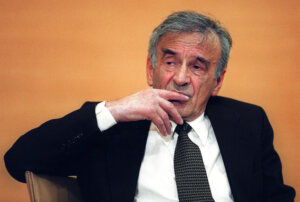
I felt drawn to prison chaplaincy while at the Jewish Theological Seminary, after a Jewish college roommate and dear friend of mine had a psychotic break and nearly killed his mother. He was sentenced to prison, eventually landing at Sing Sing Correctional Facility, which used to house New York’s electric chair. I visited him there and in several other prisons, where my eyes were opened to the needs of the incarcerated, many of whom — like my friend — might well have been me, had I not had the excellent mental health support I did as a teenager and young adult.
It was during my subsequent three years of service as a Jewish prison chaplain in Canada that I seriously began to explore the issue of state killings. I witnessed first-hand profound examples of repentance and change in individuals whose crimes might have qualified for the death penalty in various states in the U.S. At the same time, as I watched the saga of the execution of Troy Davis unfold in Georgia in 2012, the reality of the wrongful conviction epidemic and the state killing of innocent human beings hit home.
But it took the shadow of the Holocaust itself to cast off my final misgivings for the light of abolition. I discovered that the main form of execution used in the United States — lethal injection — is a direct Nazi legacy and I unearthed the abolitionist stance of Elie Wiesel, who said in a 1988 interview, “With every cell of my being and with every fiber of my memory I oppose the death penalty in all forms.”
With Wiesel’s charge, my change of heart was complete. The Holocaust had morphed from one of the greatest justifications for the death penalty in my mind to the most significant reason to stand against it, even for the Tree of Life synagogue shooter.
‘There is such a thing as being too late’
How does the Jewish concept of teshuva, repentance, play into this debate?
Cytron-Walker: Teshuva can be profound. I have heard reformed extremists speak — people who left extremist groups and now help to educate about and combat such hate. And I hope and pray that Bowers will do teshuva before he dies. That is his personal journey.
Whether the punishment is life in prison without parole or capital punishment — both take time and he will have ample opportunity to do teshuva.
Kalmanofsky: I agree with Charlie. Repentance and responsibility are related but not the same thing. The Talmud reports that those led to execution were instructed to confess and make teshuva because this is the criminal’s moral and spiritual burden. But a penitent confession doesn’t wipe away the responsibility for the crime.
Rivera: The Rambam notes that repentance and the Day of Atonement only address “sins committed between man and God,” and that sins “between man and man” are “not absolved unless he makes restitution of what he owes and begs the forgiveness of his neighbor.” (Mishneh Torah, Repentance 2:9)
And that takes time. As the Rev. Martin Luther King Jr. said, “There is such a thing as being too late. This is no time for apathy or complacency. This is a time for vigorous and positive action.”
It is human beings who pass laws like the death penalty for capital crimes. Where is the teshuva in that? It is not God who pushes the final button.
Hearing from those on death row
Zoosman: I cannot speak to any notions of teshuva for Robert Bowers, as I do not know him. I can, however, offer two current examples of the impact of execution on attempts at teshuva, and relatedly on the idea of restorative justice.
Our pen pal Mike Tisius was put to death by Missouri on June 6. Like countless other men and women condemned to die before him, Mike used his final statement to re-articulate the sincere apology that he had been expressing for years prior, writing from his clearly Christian perspective:
“I am sorry it had to come to this in this way. I wish I could have made things right while I was still here. I really did try to become a better man. … And I pray that God will forgive those who condemn me. Just as He forgave those who condemned Him. I am sorry. And not because I am at the end. But because I truly am sorry.”
Lest one erroneously believe that Mike is an outlier, consider our pen pal James Barber, known as Jimi, who is slated for execution in Alabama, on July 20-21. Elizabeth Bruenig wrote powerfully in The Atlantic about Jimi’s budding connection with the granddaughter of his victim. Just as the two of them have begun the process of encounter, repair, transformation and restoration (all necessary elements for restorative justice), Alabama’s Department of Corrections plans to kill him.
The role of ritual
Berkowitz: A feature of the early rabbinic laws of criminal execution that I find fascinating is the role of ritual. The rabbis ritualize execution, and they do so in a way that is not found in the Bible.
According to tractate Sanhedrin, the convicted person is taken from the court to the execution site, a rather theatrical last-minute rescue attempt is made, the person is asked to confess, the person is stripped, etc. Our country ritualizes execution in a similar way, with last meals and last words and a tightly choreographed execution.
Cantor Zoosman, given your work with death row prisoners, can you speak to the role of ritual in their lives? And for those of you who work with (or are yourselves) victims of violence, can you speak to the role of ritual in helping to heal from the trauma?
Zoosman: As a cantor, I turn to music — particularly chanting — when all else fails and all hope seems lost.
In this video, if you go to minute 2:30, you will see and hear our final “L’chaim” chant to Matthew Reaves, a man with diagnosed intellectual disability, just before he found out that his execution would be carried out later that very evening.
Matthew was one of two individuals with cognitive impairment put to death that day. The other was Donald Grant in Oklahoma, a man with severe mental illness. The day they were killed was Jan, 27, 2022, International Holocaust Remembrance Day.
‘My empathy and compassion lies with the Tree of Life community’
Cytron-Walker: We have to acknowledge that many in the the Tree of Life community, the Pittsburgh community and many who followed the trial closely were just retraumatized. The trial was really hard; waiting on the verdict was really hard; the sentencing phase will be really hard; and the aftermath will be really hard.
When it comes to ritual, we all can learn from the 10/27 Partnership, an incredibly thoughtful and meaningful institution in Pittsburgh named for the date of the massacre. They offer meaningful rituals to help the community mourn and heal, including individual and group therapy, wellness activities and commemorations. On the yahrzeit, they organize Torah study that I was privileged to take part in. It’s truly a beautiful tribute to those whose lives were cut short.
My empathy and compassion lies with the Tree of Life community. I am concerned about their long-term wellbeing. I’m sure there are people on both sides of this issue, which makes a difficult, painful situation all the more difficult and painful.
My prayer is that regardless of the final outcome, they can be kind and compassionate to each other and that the world will be kind and compassionate to them.



